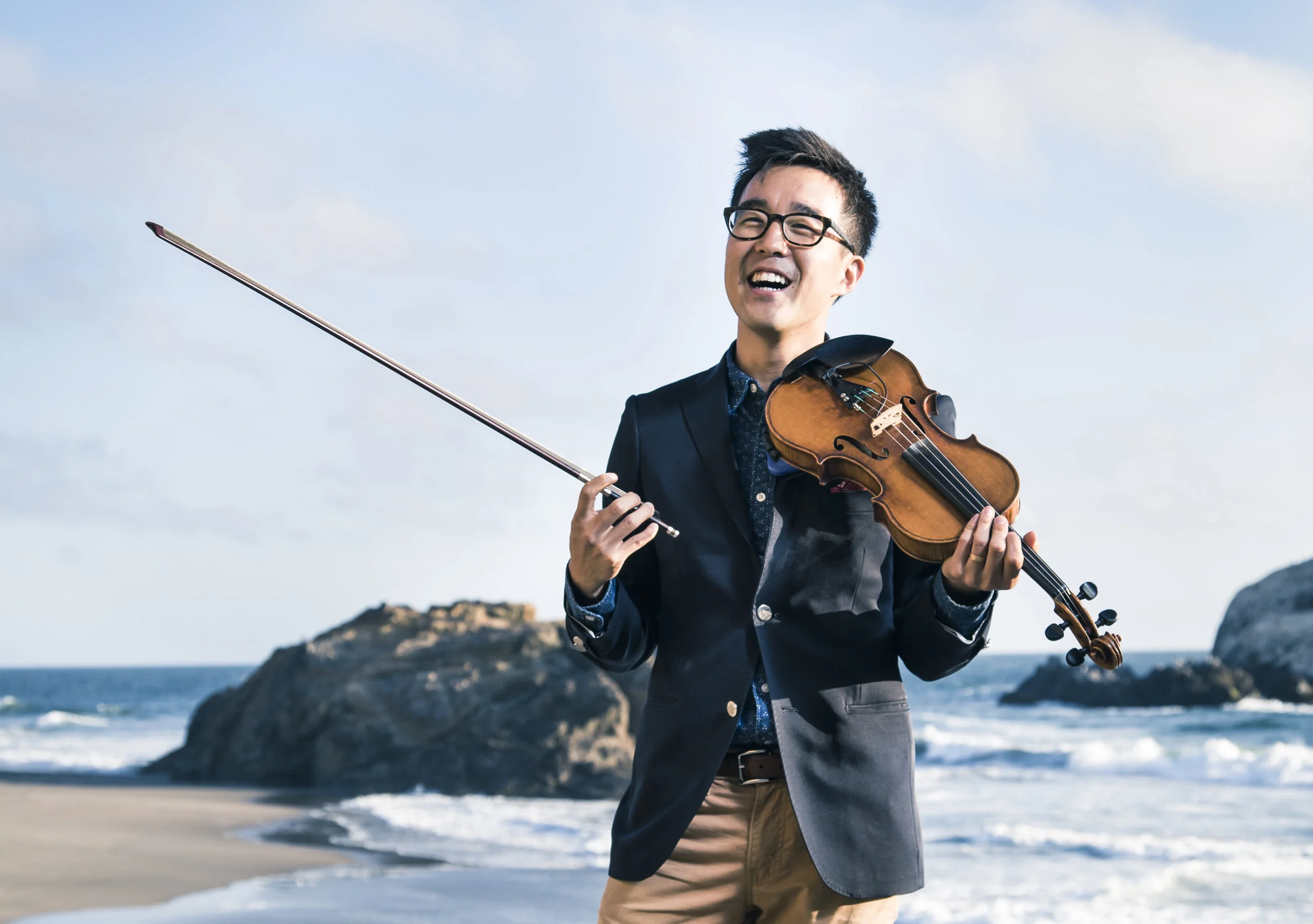Musicians for Social Justice Storytelling: An Interview with Joe Kye
Amy Hill
Editor’s Note: On May 1, StoryCenter and the Hepatitis B Foundation launched #justB, which is making real people’s stories the centerpiece of efforts to promoting hepatitis B testing, treatment advocacy, and prevention. Musician Joe Kye contributed original soundtracks to many of the stories (including Carolyn's, below), and in the process of our work with him, we hatched the idea of creating a "Musicians for Social Justice Storytelling Network." Read StoryCenter staff member Amy Hill’s interview with Joe to learn more.
Amy: We connected after I heard you being interviewed on public radio. What was it about my email that got you interested in working with StoryCenter?
Joe: It was the sincerity with which you described your connection to me through my interview—clearly, you were someone dedicated to bridging people through the power of storytelling. My goal in music is to unite people through a recognition of shared humanity, so as I learned more about StoryCenter’s mission, I knew this would be a great collaboration.
Amy: In our work, we focus on first-person stories told by real people, in their own words. Musicians "tell" stories in a completely different format. Can you describe your views on what it means to you, to tell a story in musical form?
Joe: Writing and sharing music allows me to process and lay claim to my place in the world. My immigrant identity has caused me suffering in the past, confusion in the present, and fear for the future … along with joy scattered throughout the journey. Composing helps me digest and express all of these emotions in a way that encourages self-understanding. When I share these songs at shows, I forge bonds of understanding with the audience—not only are my personal feelings normalized, we also share in our relative truths, building a more inclusive community.
Amy: Here’s another story-related question—would you share a story that touches on your earliest memories of music, and why it captivated you?
Joe: The earliest memory I have is of music: I remember drifting off to sleep on my mother’s back, my ear pressed between her shoulder blades while she softly hummed an old Korean lullaby. I will never forget that feeling of warmth, safety, and love, wrapped in a simple melody. When I arrived in the United States at the age of six, I lost everything I knew about language—but the universality of melody and harmony remained, along with its ability to connect people. It’s why I began singing in church as soon as I moved here, why I began learning the violin in 4th grade, and why I left my job as a high school teacher in 2013 to pursue music full-time.
Amy: Our most recent collaboration has focused on stories about hepatitis B. What was it like to watch those stories and compose original soundtracks for some of them?
Joe: What struck me was the immense courage displayed by each storyteller—whether the patient or a patient’s loved one. I was impressed with each creator’s ability to declare their struggle to the world. The vulnerability and honesty made this project a joy for me. I wasn’t selling anything or creating from artifice; my only goal was to build a sonic backdrop for the distilled humanity conveyed in each video.
Amy: Now we're working together to set up a "Musicians for Storytelling" network, of musicians interested in contributing tracks for use in our social justice work, at StoryCenter. How do you see this benefitting both our storytellers and the musicians who decide to participate?
Joe: As I see it, storytellers will have access to a collection of songs that they feel complement their stories, and will also get connected to various local musicians who are looking to make the world a better place. Musicians will be able to use their music for the benefit of society, will gain exposure from StoryCenter through videos and profile write-ups, and can connect with like-minded musicians. Musicians will keep all rights to their songs and get soundtrack credits on any projects to which they contribute. We'll be posting announcements to Facebook soon, about the network.
Amy: What's next on the horizon for you, in your own evolution as a musician?
Joe: My next project, Migrants, includes a new album and an Asia/U.S. tour about moving beyond mere tolerance of the “other.” Instead, we should actively work to become better migrants, fluidly moving from one human experience to another. The more we can appreciate our interconnectedness, the more quickly we can break down the borders and boundaries that separate us.
Hear Joe’s music and follow his work:
www.joekye.com
Facebook: /joekye
Instagram: @joekye
Twitter: @joe_kye
Follow Joe and StoryCenter on Facebook, to see announcements about the Musicians for Storytelling Network, or join the Network here.
